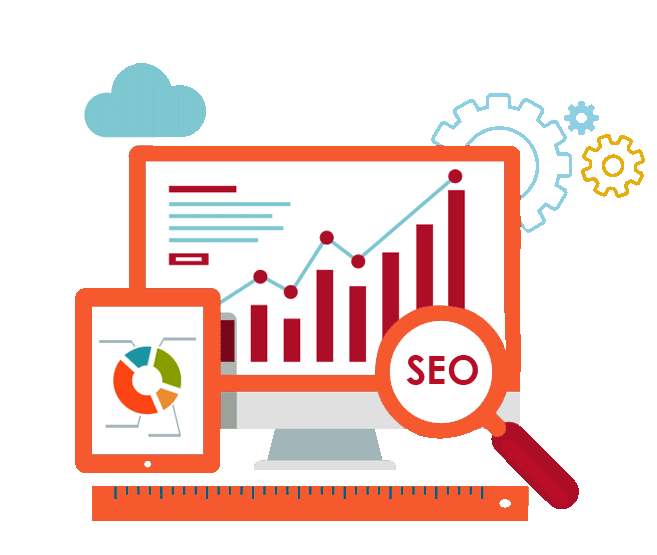
| Email Address sales@sprintsmsservice.com |
Destination For Your Business Goal

| |

Our advanced technology and integrated approach ensure that your website ranks higher on search engine results pages (SERPs). We understand the importance of content and technical research in search engine algorithms, and use this knowledge to boost your online presence. With effective SEO management, your website can be optimized to appear at the top of search results when users search for relevant services or products on search engines like Google and Bing.
SEO, or Search Engine Optimization, is the practice of optimizing websites and content to improve their visibility and ranking on search engine results pages (SERPs). SEO involves a variety of techniques, such as conducting keyword research, optimizing content, improving website structure and navigation, building backlinks, and tracking and analyzing website performance. The goal of SEO is to make it easier for search engines to crawl and understand the content on a website, and to provide users with the most relevant and useful results for their search queries. By implementing effective SEO strategies, businesses can increase their online visibility and attract more targeted traffic to their website.
When You Sum Up Everything, You Can Expect The Following Results

Greater Traffic
One of the main benefits of SEO is that it can lead to greater website traffic. By optimizing a website's content for specific keywords and improving its ranking in SERPs, businesses can increase their visibility and attract more potential customers to their website. This increased traffic can lead to more leads, sales, and revenue for the business. Additionally, SEO can have a long-lasting impact on traffic, as the optimized content can continue to attract visitors to the website for years to come. By investing in SEO, businesses can improve their online presence, reach their target audience, and ultimately drive more traffic to their website which is quite beneficial for your business making sure that you always get the desired results.

Increased Leads
Another significant benefit of SEO is that it can generate increased leads for businesses. By optimizing their website content with keywords and providing valuable information, businesses can attract potential customers who are actively searching for their products or services. This increased visibility and relevance can lead to a higher likelihood of generating leads and conversions. Furthermore, by providing helpful information and addressing the pain points of their target audience, businesses can establish trust and credibility, which can further increase the chances of converting leads into paying customers. In this way, SEO can help businesses generate a steady stream of qualified leads that can help grow their business over time.

Greater Trust
SEO can also help businesses build greater trust with their target audience. By optimizing their website content for search engines and providing valuable information, businesses can establish themselves as authoritative sources in their industry. This can help establish trust with potential customers, who may be more likely to choose a business they perceive as knowledgeable and credible. Additionally, by appearing high in search engine rankings, businesses can create a perception of reliability and trustworthiness, which can further boost their reputation. By investing in SEO and providing high-quality, valuable content, businesses can build trust with their target audience, which can ultimately lead to increased brand loyalty.

Brands Awareness
SEO can also help businesses increase brand awareness. By appearing high in search engine rankings for relevant keywords, businesses can reach a wider audience and increase their visibility. This increased exposure can lead to greater brand recognition and familiarity, which can help establish the business as a leading authority in its industry. Additionally, by creating valuable and shareable content, businesses can encourage others to share and promote their brand, further increasing their reach and exposure. By investing in SEO and creating a strong online presence, businesses can build brand awareness, increase their visibility, and ultimately establish themselves as a trusted and recognizable brand in their industry.

Business Growth
SEO can have a significant impact on a business's growth. By attracting more traffic, generating leads, and building trust and brand awareness, businesses can increase their sales and revenue. Additionally, by optimizing their website and content for search engines, businesses can improve their online visibility and reach a wider audience. This increased visibility can lead to more partnerships and collaborations for growth and expansion. By continuously improving their SEO strategy and staying ahead of the competition, businesses can establish themselves as industry leaders and continue to grow and thrive in their market. In this way, SEO can play a critical role in a business's long-term success and growth.

More Revenue
SEO can directly impact a business's revenue by increasing website traffic, generating leads, and ultimately driving sales. By optimizing their website and content for specific keywords and search intent, businesses can attract more qualified traffic to their website. This increased traffic can lead to more conversions and sales, which can have a significant impact on revenue. Additionally, by improving their search engine rankings and visibility, businesses can attract more potential customers and increase their overall brand recognition and trust. By investing in SEO and continuously optimizing their strategy, businesses can drive more revenue and grow their bottom line, ultimately contributing to their long-term success and growth.
SEO vs Traditional Marketing
Search Engine Optimization (SEO) and Traditional Marketing are two different approaches to promoting products or services. Traditional marketing refers to the conventional methods of advertising, such as print ads, television commercials, billboards, and radio spots. On the other hand, SEO refers to the process of optimizing a website's content to increase its visibility in search engine results pages (SERPs).
Frequently Asked Questions

What is SEO, and why is it important for businesses?
Search engine optimization (SEO) is the practice of optimizing a website's content and structure to rank higher in search engine results pages (SERPs). It helps businesses attract more organic traffic to their website and increase their visibility. By optimizing their content with relevant keywords and improving their website's structure, businesses can increase their chances of ranking higher in search engine results pages.

What are some best practices for optimizing website content for SEO?
Some best practices for optimizing website content for SEO include conducting keyword research, creating high-quality and relevant content, optimizing title tags and meta descriptions, using header tags to structure content, and including internal and external links. It's also important to ensure that website content is easy to read and visually appealing to users.

How long does it take to see results from SEO efforts?
The time it takes to see results from SEO efforts varies depending on several factors, including the competition in your industry, the quality of your website and content, and the resources and efforts invested in SEO. Generally, businesses can start seeing results from SEO within three to six months of implementing a strategy, but it can take longer in more competitive industries.

What is the difference between on-page and off-page SEO?
On-page SEO refers to the optimization of a website's content and structure, while off-page SEO refers to the optimization of factors outside of a website, such as backlinks and social media presence. Both on-page and off-page SEO are important for improving a website's search engine rankings and visibility.

Can SEO work for small businesses?
Yes, SEO can be highly effective for small businesses. In fact, SEO can be a more cost-effective marketing strategy than traditional methods, such as paid advertising. By optimizing their website and content, small businesses can increase their visibility and attract more organic traffic to their website, which can lead to increased leads, sales, and revenue.

Is it necessary to hire an SEO agency or consultant for SEO efforts?
While it's possible to implement an SEO strategy on your own, it can be highly beneficial to work with an experienced SEO agency or consultant. They can provide valuable insights and expertise, conduct in-depth keyword research, and develop and implement a comprehensive SEO strategy that aligns with your business goals.